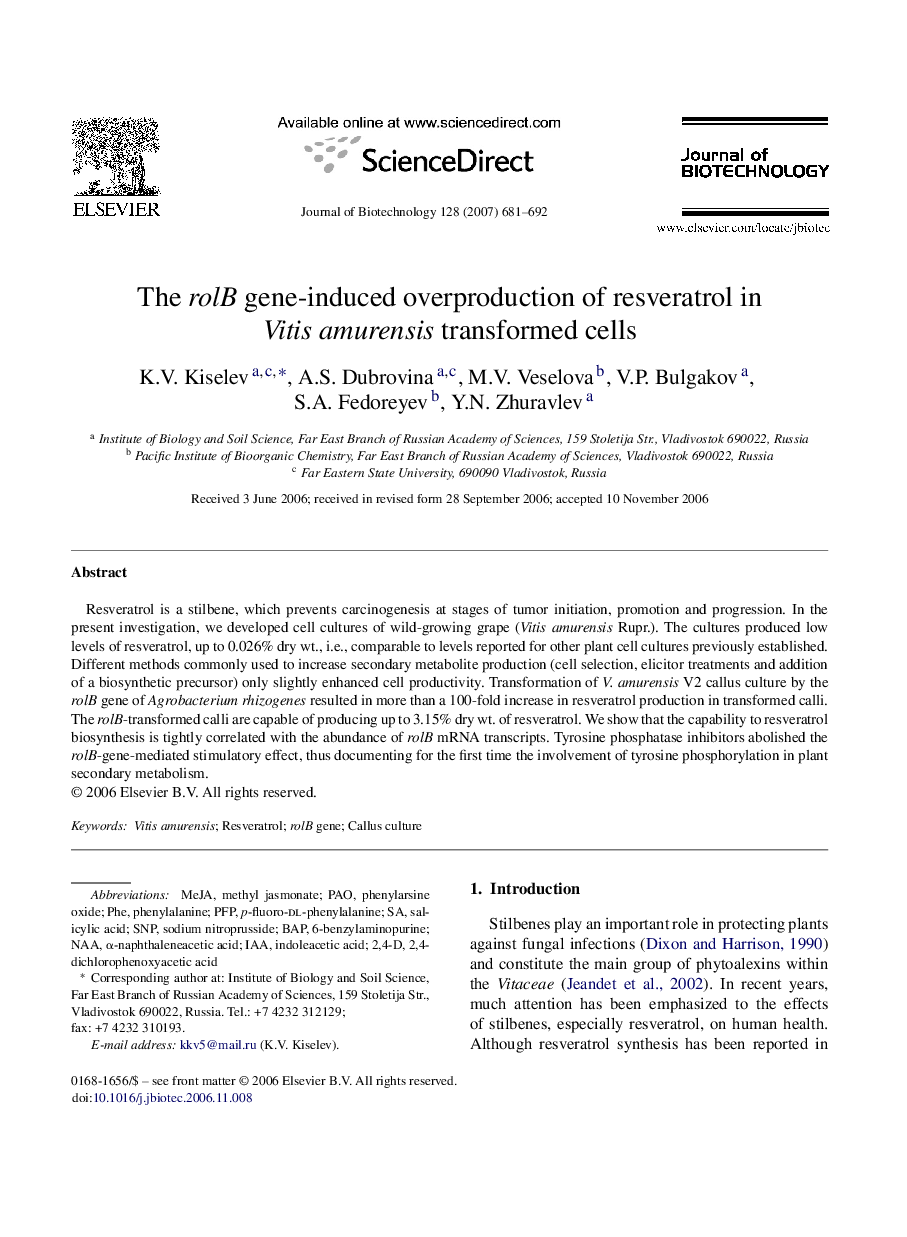| Article ID | Journal | Published Year | Pages | File Type |
|---|---|---|---|---|
| 25287 | Journal of Biotechnology | 2007 | 12 Pages |
Resveratrol is a stilbene, which prevents carcinogenesis at stages of tumor initiation, promotion and progression. In the present investigation, we developed cell cultures of wild-growing grape (Vitis amurensis Rupr.). The cultures produced low levels of resveratrol, up to 0.026% dry wt., i.e., comparable to levels reported for other plant cell cultures previously established. Different methods commonly used to increase secondary metabolite production (cell selection, elicitor treatments and addition of a biosynthetic precursor) only slightly enhanced cell productivity. Transformation of V. amurensis V2 callus culture by the rolB gene of Agrobacterium rhizogenes resulted in more than a 100-fold increase in resveratrol production in transformed calli. The rolB-transformed calli are capable of producing up to 3.15% dry wt. of resveratrol. We show that the capability to resveratrol biosynthesis is tightly correlated with the abundance of rolB mRNA transcripts. Tyrosine phosphatase inhibitors abolished the rolB-gene-mediated stimulatory effect, thus documenting for the first time the involvement of tyrosine phosphorylation in plant secondary metabolism.
